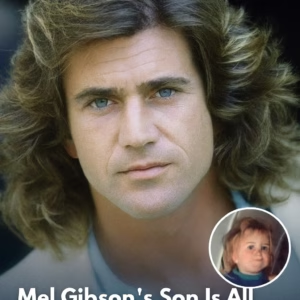If you know what a trumpet worm nest is — if you remember digging through the dirt looking for them on hot afternoons — chances are your childhood wasn’t easy. But it was real.
For some of us, childhood wasn’t about shiny toys or vacations. It wasn’t about summer camps, game consoles, or swimming pools. It was about long days outside, scraped knees, dirty hands, and imaginations big enough to make up for everything we didn’t have.
Finding trumpet worm nests wasn’t just play — it was discovery. It was what happened when curiosity met necessity. Those little mounds of dirt, the tiny tunnels just below the surface, were part of a secret world that belonged only to us. We’d crouch down in the dust with sticks or spoons, carefully digging around the edges, proud when we found one. It wasn’t about the worms themselves — it was about proving we could find something special in a place most people ignored.
While other kids spent their afternoons glued to glowing screens, we had the earth. We had wind and grass and the smell of rain hitting dry ground. Our “playgrounds” were backyards, empty lots, fields behind old buildings — places where imagination did the heavy lifting.
We didn’t realize it then, but those small adventures were survival. They distracted us from the tension inside the house, the unpaid bills, the tired faces of parents doing their best. Out there in the dirt, we could control something. We could find beauty, even if it was buried.
When you grow up with very little, you learn quickly how to make something out of nothing. A plastic bottle becomes a rocket. A stick becomes a sword. The neighbor’s fence becomes a mountain to climb. We learned to adapt, to create, to find joy in things that didn’t cost a cent.
It’s easy to romanticize it now, to call it “simpler times,” but it wasn’t always simple. There were nights we went to bed hungry or mornings we walked to school in hand-me-down shoes that didn’t quite fit. We weren’t playing poor — we were just living. But even then, we had laughter. We had friendships built on shared struggle and small victories.
We learned early that happiness wasn’t something you bought — it was something you made.
There’s something powerful about that kind of upbringing. It doesn’t leave you fragile; it leaves you forged. It gives you a kind of strength people can’t see but can feel. You learn to smile through discomfort, to find light in dark corners. You learn that resilience isn’t loud or dramatic — it’s quiet, steady, and relentless.
Those childhood games — searching for worms, racing bottle caps down rain gutters, catching fireflies in jars — were our first lessons in resourcefulness. They taught us patience, creativity, and appreciation. They taught us that fun didn’t require luxury. It required curiosity.
And it wasn’t just about play. Growing up rough also meant growing up aware. We saw our parents fight exhaustion to keep food on the table. We saw them skip meals so we could eat, or work two jobs so we could have school supplies. We noticed things — how adults’ voices got softer when they talked about money, how pride kept them from asking for help.
We learned gratitude not from lectures, but from experience. Gratitude for small things — for power staying on another week, for free lunches at school, for neighbors who looked out for each other. Gratitude for the rare days when things just felt normal.
It’s funny — as adults, we look back and realize how much those years shaped us. We’re the ones who don’t flinch when life gets tough. The ones who don’t panic when money runs tight or when plans fall apart. We’ve been there before. We know how to make it work.
We’re also the ones who value the simple joys — a quiet morning, a home-cooked meal, a laugh shared with someone we love. Because we know how fleeting comfort can be. We know how to live without it — and how to appreciate it deeply when we have it.
That’s what growing up rough really does. It teaches perspective. It teaches humility. It teaches you that people matter more than possessions — that kindness is currency and that pride without compassion is worth nothing.
Of course, not everything about those days was noble or character-building. There was fear too — fear of being different, of being “the poor kid,” of being seen for what you didn’t have. Some of us carried shame we didn’t deserve. We laughed off insults. We learned to act tougher than we felt. Survival demanded it.
But underneath all that, we built something stronger — an understanding of what really matters.
When we look at life now, with its endless comparisons and social media highlights, we realize how rare that perspective is. We don’t measure success by things we own. We measure it by peace. By stability. By knowing we can get through anything, because we already have.
The kids who hunted for trumpet worm nests learned lessons no classroom could teach: how to share, how to endure, how to find beauty in what’s overlooked. We learned that joy doesn’t depend on what you have, but on how you see.
When we gather now — grown, tired, building lives of our own — we laugh about it. About how we thought catching bugs was fun, about how we built forts out of scrap wood, about the dirt under our nails that no amount of soap could wash away. We remember the freedom of it, the wildness, the simplicity.
But beneath the laughter, there’s gratitude. Gratitude for the resilience it gave us. Gratitude for the people who raised us with love when they had little else to give. Gratitude for the lessons that only hardship can teach.
Because that kind of childhood doesn’t just pass — it stays in your bones. It becomes part of who you are. It shows up every time you face a setback and think, I’ll figure it out. It whispers to you when things feel impossible: You’ve done more with less. You can do this too.
So if you ever spent your childhood digging for trumpet worms, playing with bottle caps, or turning dirt into a playground, don’t look back with shame. Look back with pride. You were building more than memories — you were building resilience.
You were learning how to make beauty out of struggle.
And that, more than anything, is what carries us through adulthood. Not the money, not the things we wished we’d had — but the ability to find joy even when there’s none to spare.
A rough childhood doesn’t define you by what you lacked. It defines you by what you learned.
And for those of us who grew up that way, we carry one quiet truth with us everywhere we go: life doesn’t have to be easy to be meaningful. Sometimes, the hardest beginnings grow the strongest hearts.





